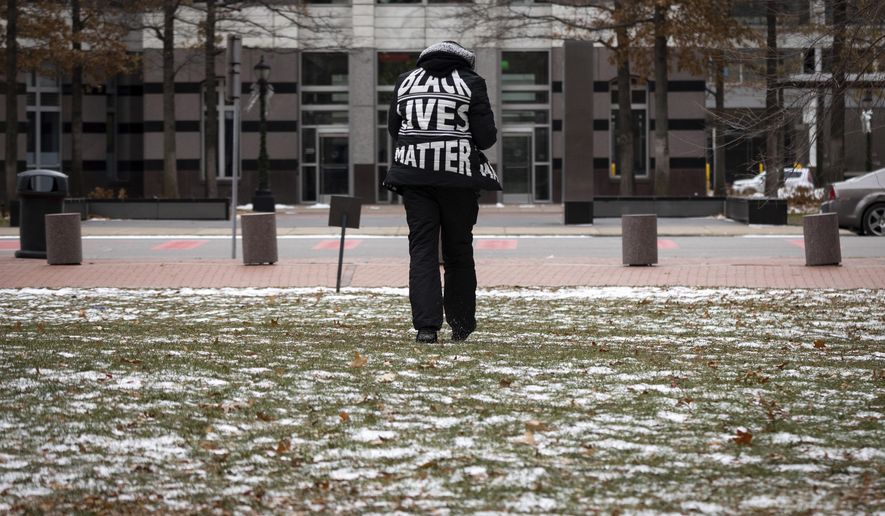Whole Foods Markets says the National Labor Relations Board of trampling its constitutional rights by trying to force the company to let employees wear “Black Lives Matter” masks at work.
The independent federal agency accused the high-end supermarket chain of violating its workers’ rights because it does not allow them to wear politically charged masks in its stores.
Whole Foods is countering that the federal government has no right to tell a private company that it can’t keep the workplace free of political messages, according to the company’s response to NLRB, which was obtained by Bloomberg through the Freedom of Information Act.
Whole Foods said Jennifer Abruzzo, who was appointed by President Biden as the board’s general counsel, is unconstitutionally forcing Whole Foods to take a political stance in violation of its First Amendment rights.
In addition, the upscale grocer said the NLRB is violating its trademark rights by forcing it to allow the display of a “political message in conjunction with its trademarked uniforms and logos,” according to the company’s response.
The case is set to be heard by an NLRB judge in March.
Though the case is over workers’ complaints about not being able to wear BLM masks, company spokesman Brian McGuigan said Whole Foods isn’t singling out the movement. The company’s dress code prohibits employees “from wearing attire or apparel with any visible slogans, messages, logos or advertising that are not company-related,” he said in a statement to The Washington Times.
The company’s dress code “is designed to ensure we are giving Team Members a workplace and customers a shopping experience focused entirely on excellent service and high-quality food. We do not believe we should compromise that experience by introducing any messages on uniforms, regardless of the content, that shift the focus away from our mission,” it said.
The NLRB did not respond to a request for comment.
In the complaint against Whole Foods, the labor board argued that workers have a right to wear BLM gear at work because federal labor law allows them to take “concerted activities for their mutual aid and protection.”
Whole Foods responded that those rights only apply to workers being able to protest their working conditions, not to bring BLM messages, which it called “political and/or social justice speech,” into the grocery aisle.
The company’s filing said “BLM” and related phrases “are not objectively understood to relate to workplace issues or improving working conditions at WFM’s retail grocery stores” or employment terms and conditions in general. “Employees do not have a protected right to display the phrase ’Black Lives Matter’ or ’BLM’ in the workplace,” the company’s attorneys wrote.
Ms. Abruzzo, who had previously served as special counsel for the Communication Workers of America, argued in an interview with Bloomberg last month that the law does extend to workers having the right to advocate for a “broader movement” at work.
Ms. Abruzzo was confirmed in a party-line vote by Senate Democrats in July after Vice President Kamala Harris cast the tie-breaking vote.
• Kery Murakami can be reached at kmurakami@washingtontimes.com.




Please read our comment policy before commenting.